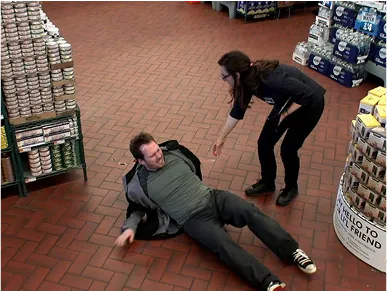Blog

New Blog Post
What to Do Immediately After a Slip and Fall Accident in North Carolina?
Slip and fall accidents happen when we least expect them and they can lead to serious injuries. Whether it occurs in a grocery store, on a public sidewalk, or at work, knowing the right steps to take immediately after a slip and fall is essential for your health, your legal rights, and any potential injury claim you may file.
In this article, we’ll walk you through exactly what to do after a slip and fall accident to protect yourself physically, financially, and legally.

1. Seek Medical Attention Immediately
Your health comes first. Even if you feel fine, slip and fall injuries such as concussions, internal bleeding, or spinal damage might not show symptoms right away. Visit a doctor as soon as possible and follow all medical advice.
Pro Tip: Keep all medical records, doctor’s notes, prescriptions, and receipts. These documents are critical if you pursue a personal injury claim.
2. Report the Accident
If the fall occurred on someone else’s property like a store, restaurant, or apartment complex, report it to the manager, landlord, or property owner. Make sure the report is documented in writing. Ask for a copy of the incident report if one is created.
3. Document Everything at the Scene
Evidence fades quickly, so take action while the scene is fresh:
Take photos of the exact spot where you fell, including any hazards like spills, broken flooring, poor lighting, or uneven surfaces.
Photograph your injuries right after the fall and as they progress.
Write down details about the time, location, conditions, and any contributing factors (e.g., no warning signs or wet floors).
4. Get Witness Information
If anyone saw your fall or the dangerous condition that caused it, ask for their contact information. Witness statements can significantly strengthen your case later on.
5. Avoid Making Detailed Statements
Be cautious about what you say to property owners, managers, or insurance adjusters. Never admit fault or downplay your injuries. Statements made in the moment can be used against you later. Example: Instead of saying, “I’m fine,” say, “I need to get checked by a doctor.”
6. Preserve Physical Evidence
Keep the shoes and clothing you wore at the time of the fall. These items can serve as important evidence, especially if they have blood, tears, or residue from the scene.
7. Contact a Slip and Fall Injury Lawyer
A qualified personal injury lawyer can help you:
Understand your rights
Collect and preserve evidence
Negotiate with insurance companies
Pursue compensation for medical bills, lost wages, and pain and suffering
Most slip and fall lawyers offer free consultations and work on a contingency fee meaning they only get paid if you win.
Why Taking Immediate Action Matters
Slip and fall cases often depend on whether the property owner was negligent and whether proper evidence is available. If you wait too long or fail to document the accident properly, your chances of receiving fair compensation may decrease. The stakes(link CB5) are high when evidence is lost or claims are delayed. In most states, you have 2–3 years from the date of the fall to file a lawsuit but the sooner you act, the better your chances.
Final Thoughts
Knowing what to do after a slip and fall accident can make all the difference. Prioritize your health, gather evidence, and consult a legal expert to protect your rights. Whether your injuries are minor or severe, don't assume you're at fault or alone, help is available.
